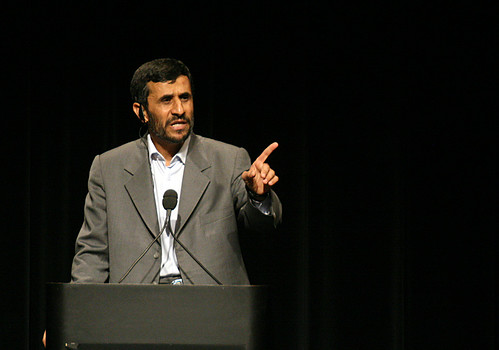Jonathan Power: There Are Many Irans
 Let’s exaggerate. Iran has been singled out for persecution over its alleged nuclear bomb making program because in 1979 its Revolutionary Guards took the staff of the U.S. embassy hostage, causing outrage in America with even the esteemed Walter Cronkite ratcheting up the tension, putting up on the screen, as he read the nightly news, the number of days they had been incarcerated. The sitting president, Jimmy Carter, was deposed, tarred with the brush of utter failure.
Let’s exaggerate. Iran has been singled out for persecution over its alleged nuclear bomb making program because in 1979 its Revolutionary Guards took the staff of the U.S. embassy hostage, causing outrage in America with even the esteemed Walter Cronkite ratcheting up the tension, putting up on the screen, as he read the nightly news, the number of days they had been incarcerated. The sitting president, Jimmy Carter, was deposed, tarred with the brush of utter failure.
Something of an exaggeration that this was the sole or even the most important factor in building a pro bomb lobby in Iran. Still it has a grain of truth: Iran has been singled out unfairly. The West and Russia are engaged in discriminating against it.
Brazil has had a nuclear enrichment program for decades (including a large ultracentrifuge enrichment plant, several laboratory-scale facilities, a reprocessing facility to make plutonium, and a missile program). In the 1980s it built two nuclear devices. Three years ago I asked the chief of mission at the U.S. embassy in Brasilia if Washington was worried about Brazil. “Not at all,” he replied. “In the early 1990s Brazil dismantled its nuclear weapons program, and Argentina, its supposed enemy, has done the same.” “But,” I insisted, “Brazil still has its enrichment program and a reprocessing facility”. “We have no worries about Brazil,” he answered. “We see eye to eye.” However, Brazil still resists, in part, the probing eye of the International Atomic Energy Agency, the world’s nuclear watchdog.
In 1979 the attitude of the Carter administration toward Pakistan, then attempting to build its own bomb, was almost as harsh as is the attitude of the United States toward Iran today. All American military aid was suspended, even though the Taliban were a lurking potential threat. However, when Soviet troops invaded Afghanistan in December of that year, Carter persuaded Congress to restart a large-scale arms program. For the next decade, in return for Pakistan’s help building up the anti-Soviet mujahedeen fighters in Afghanistan (who later went to work for Osama bin Laden), Washington turned a blind eye to Pakistan’s effort to build nuclear weapons.












